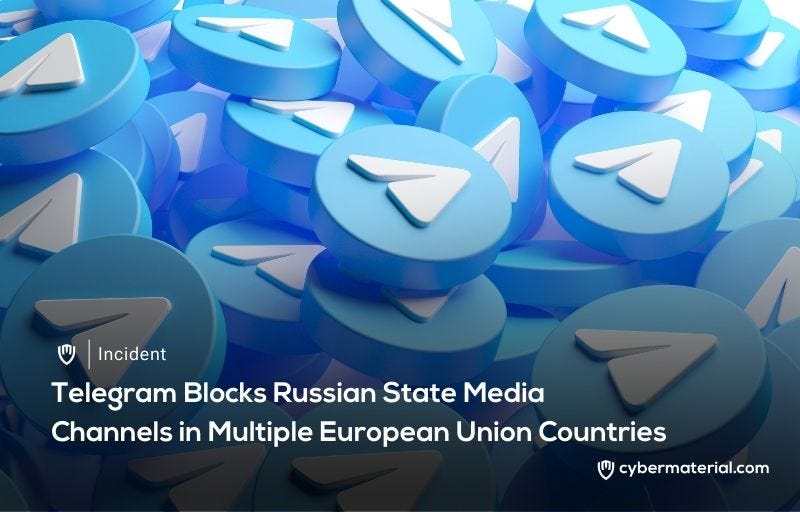
Telegram has recently blocked access to several Russian state-owned media channels in a range of European countries, including Poland, Belgium, France, Italy, Greece, Latvia, and the Netherlands. The…

Telegram has recently blocked access to several Russian state-owned media channels in a range of European countries, including Poland, Belgium, France, Italy, Greece, Latvia, and the Netherlands. The…